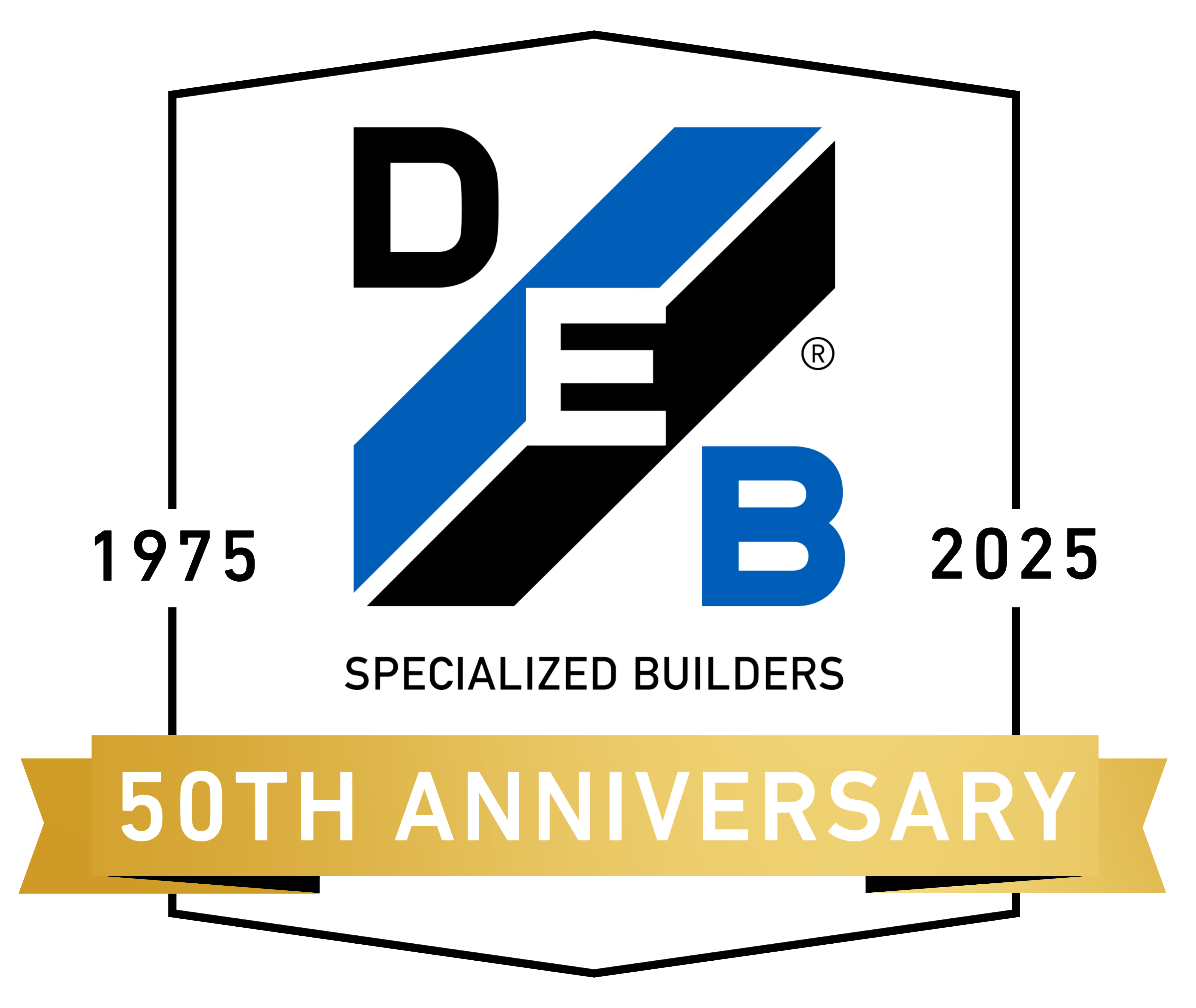Challenges Encountered in Commercial Construction Projects
The commercial construction industry plays a pivotal role in global economic development, contributing significantly to infrastructure enhancement and job creation. According to a report by the U.S. Bureau of Labor Statistics, the commercial construction sector is projected to grow by 10% from 2020 to 2030, underlining the increasing demand for new commercial spaces. However, despite its promising trajectory, this field is fraught with challenges that can impede progress and inflate costs.

Issues such as labor shortages, supply chain disruptions, and regulatory compliance consistently hinder project timelines and budgets. For instance, a survey by the Construction Industry Institute revealed that nearly 60% of construction projects face delays, largely attributed to unforeseen complexities and coordination failures. This blog aims to delve into the prominent challenges encountered in commercial construction projects, providing insights and strategies to navigate these obstacles effectively.
Identifying Common Challenges in Commercial Construction Projects
In the realm of commercial construction, project managers frequently encounter a variety of challenges that can impede progress and escalate costs. One common issue is the complexity of regulatory compliance. Each project may require adherence to different building codes and safety regulations, which can vary significantly from one jurisdiction to another. Navigating these regulations necessitates a deep understanding of local laws and can lead to delays if not managed effectively. Furthermore, securing the necessary permits in a timely manner is crucial, and the process can be prolonged due to bureaucratic hurdles.
Another significant challenge is the coordination among various stakeholders, including architects, contractors, and clients. Effective communication is vital; however, misalignment on project goals or expectations often leads to misunderstandings and rework. Additionally, managing the supply chain can pose difficulty. Fluctuations in the availability of materials or equipment can disrupt scheduling and budget plans. These challenges, if not anticipated and addressed proactively, can compromise the success of commercial construction projects.
Effective Project Management Strategies for Overcoming Obstacles
 In the realm of commercial construction, project managers face a multitude of challenges that can impede progress and inflate budgets. Among these obstacles are logistical issues, regulatory compliance, and unforeseen site conditions. To tackle these challenges effectively, project management strategies must be robust and adaptable. Implementing a comprehensive risk management plan at the onset of a project allows teams to identify potential hazards early and devise mitigation strategies.
In the realm of commercial construction, project managers face a multitude of challenges that can impede progress and inflate budgets. Among these obstacles are logistical issues, regulatory compliance, and unforeseen site conditions. To tackle these challenges effectively, project management strategies must be robust and adaptable. Implementing a comprehensive risk management plan at the onset of a project allows teams to identify potential hazards early and devise mitigation strategies.
Regular communication among stakeholders fosters transparency and encourages proactive problem-solving, which is crucial when unexpected circumstances arise.
Another effective strategy is to embrace technology in project management. Utilizing project management software can streamline workflows, enhance collaboration, and provide real-time updates on project status. Tools like Building Information Modeling (BIM) allow for precise planning and resource allocation, reducing the likelihood of costly errors. Furthermore, investing in ongoing training for the workforce ensures that all team members are equipped with the latest industry practices and technologies.
By integrating these project management strategies, construction firms can not only navigate the complexities of commercial projects but also enhance overall efficiency and success.
Budgeting and Financial Risks in Commercial Construction Endeavors
Budgeting and financial risks are critical considerations in commercial construction projects, often posing significant challenges. One of the primary difficulties is creating an accurate budget that reflects the complexities and uncertainties inherent in construction. Fluctuations in material costs, labor expenses, and unforeseen delays can easily derail financial plans, leading to budget overruns and strained client relationships. Effective financial management requires not only an understanding of current market conditions but also the ability to anticipate future changes.
Furthermore, the multifaceted nature of the engineering consulting services industry plays a crucial role in managing these risks. Professionals in this field must integrate expertise in various areas such as engineering, economics, and legal regulations to provide comprehensive financial oversight on projects. This cross-disciplinary approach is essential for developing robust financial strategies that accommodate the diverse challenges presented during construction. By leveraging a blend of technical expertise and strategic financial planning, stakeholders can enhance their ability to navigate budgetary constraints effectively, ensuring successful project delivery.
Challenges Encountered in Commercial Construction Projects - Budgeting and Financial Risks in Commercial Construction Endeavors
| Challenge | Description | Potential Impact | Mitigation Strategies |
|---|---|---|---|
| Cost Overruns | Higher than expected expenses due to inaccurate estimates or changes in scope. | Project delays and potential loss of profit. | Regular budgeting reviews and contingency planning. |
| Funding Issues | Delays in securing financing or cash flow problems. | Project suspension or failure to complete. | Comprehensive financial planning and maintaining a good credit rating. |
| Scope Creep | Uncontrolled changes or continuous growth in a project’s scope. | Increased costs and project delays. | Strict change management processes and stakeholder communication. |
| Labor Shortages | Lack of skilled labor can delay project timelines. | Increased labor costs and potential impact on quality. | Invest in training programs and establish good subcontractor relationships. |
| Market Fluctuations | Changes in the economy affecting material costs. | Unexpected budgetary pressure leading to reductions in profit margins. | Fixed-price contracts with suppliers and extensive market analysis. |
Navigating Regulatory Compliance and Permitting Issues
Navigating regulatory compliance and permitting issues is one of the most daunting challenges in commercial construction projects. Each project must adhere to a complex landscape of local, state, and federal regulations, which can vary significantly based on location and type of construction. This maze of compliance often requires the involvement of legal experts and consultants to interpret codes, determine necessary permits, and ensure that all documentation is accurate. Failure to comply can lead to costly delays, redesigns, or even legal repercussions, making thorough understanding and meticulous planning essential.

Moreover, the permitting process itself can be an extensive bottleneck. Depending on the jurisdiction, obtaining the required permits can take weeks or even months, during which time construction timelines may be jeopardized. Engaging with the community and local officials early in the process can ease some of this friction, as open communication fosters goodwill and can sometimes expedite approvals. While the complexities of regulatory compliance and permitting can be overwhelming, proactive strategies and a dedicated team can help navigate these hurdles effectively, paving the way for successful project completion.
The Importance of Communication in Mitigating Construction Challenges
Effective communication is a cornerstone in addressing the myriad challenges faced in commercial construction projects. A study conducted by the Project Management Institute reveals that poor communication contributes to approximately 56% of project failures. Such failures often manifest as budget overruns, missed deadlines, and compromised quality, highlighting the critical role that clear and consistent communication plays.
To mitigate these challenges, consider implementing regular meetings and updates that involve all stakeholders. Establishing a project communication plan that outlines reporting structures, with designated points of contact, can help in managing information flow efficiently. According to a Construction Industry Institute report, projects that prioritize stakeholder communication increase the likelihood of project success by 20%.
Furthermore, utilizing technology such as project management software can facilitate real-time collaboration and transparency. This helps in quickly addressing issues as they arise and keeps everyone aligned towards common objectives. Creating an environment that encourages open dialogue can also enhance trust and teamwork, allowing for smoother navigation through the complexities of commercial construction projects.
Related Posts
-

7 Secrets to Mastering General Construction for Your Next Project
-

The Ultimate Guide to Choosing the Right General Contractor Services for Your Global Procurement Needs
-

Understanding Global Standards for Best Construction General Contractors
-

Unlocking the True Potential of Best Structural Contractors Through Comprehensive Technical Specifications and Practical Guides
-

7 Best General Construction Techniques You Should Know
-

Unlocking Success in Your Construction Business a Step by Step Guide for Global Buyers
